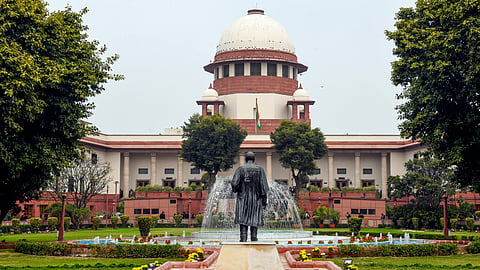

NEW DELHI: The Supreme Court on Thursday strongly criticized Tamil Nadu Governor Dr. RN Ravi for withholding assent to several Bills passed by the State Legislative Assembly.
The apex court noted that the Governor seemed to have "devised his own procedure" in handling the Bills, despite a previous ruling that governors cannot indefinitely delay or reject them.
The two-judge bench, comprising Justice JB Pardiwala and Justice R Mahadevan, while hearing two petitions filed by the Tamil Nadu government against Governor RN Ravi for withholding assent to Bills between 2020 and 2023, referred to its November 2023 verdict in a case involving the Punjab government, which ruled that a Governor cannot indefinitely withhold approval for Bills passed by the Assembly. As the arguments remained incomplete, the hearing will continue on Friday.
During the proceedings, the court questioned Attorney General R Venkataramani, who appeared for the Governor, asking for factual reasons behind the decision to withhold assent. The judges stated that the petitioners had alleged not only malice in law but also malice in fact.
The court framed key questions for resolving the dispute, including whether a Governor can still withhold assent after a Bill is passed again and sent back by the Assembly. It also questioned whether the Governor’s discretion to send a Bill to the President is limited to specific matters and whether a time frame should be set for such decisions under Article 200 of the Constitution.
The Supreme Court further observed that by indefinitely withholding assent, the Tamil Nadu Governor appeared to have made a key provision of Article 200 ineffective. The judges clarified that they were not undermining the Governor’s authority but were examining his actions regarding 12 Bills passed by the Assembly, which he withheld, and two Bills that he sent directly to the President. Justice Pardiwala asked what was so serious about these Bills that led to such an action.
The Tamil Nadu government alleged that Governor Ravi has acted with malice from the beginning and had not followed the advice of the Chief Minister and the Council of Ministers, as required by the Constitution.
The state government pointed out that several key files, including those related to the premature release of prisoners, the appointment of TNPSC chairman and members, and a Bill seeking to remove the Governor from the post of Vice-Chancellor of universities, are still pending approval.